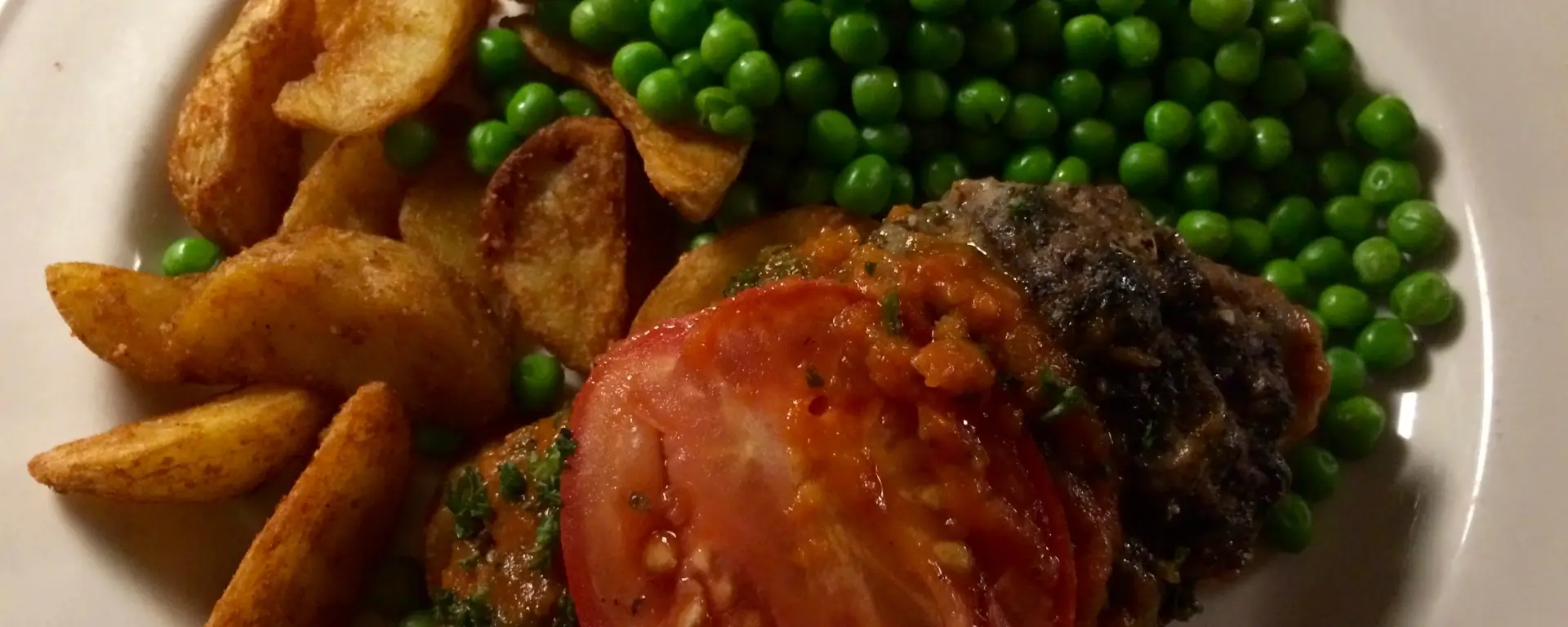All term, I’ve noted the different ways British people talk, eat, get around, and get lit. Here’s my collection of these observations:
Food:
- Lots of potatoes (mashed, roasted, and fried) and peas (I was surprised when I didn’t see peas)
- Meat pies and shepherds pies
- Classic fish and chips
- The full English breakfast: sausage, bacon, baked beans, mushroom, tomato, egg, porridge, croissant, tea and coffee
Lingo:
- rubbish bins (which I think sounds so much cuter than trash cans)
- porridge (oatmeal)
- queue (no such thing as a line). Queuing = lining up
- pants (underwear)
- trousers (pants)
- kit (uniform)
- jumper (sweatshirt)
- dungaree (overalls)
- waistcoat (vest)
- ‘Crew date’: essentially a giant dinner where a girls’ sports team goes to a restaurant with a boys’ sports team. It is full of quirky traditions but generally makes for a fun night.
- ‘Vinnies’: a bar exclusively for Oxford sports teams. Make sure to try a Pinkies (tastes sweet and fruity but deceptively has 5 shots of vodka). Also, no blue jeans allowed
- ladybird (ladybug)
- ill (sick)
- torch (flashlight)
- tramline: the alley in tennis (outer tramline is the doubles line)
- bumbag (fanny pack)
- pavement (sidewalk)
- zebra crossing: a crosswalk (it makes sense!)
- ground floor (1st floor)
- maths (mathematics)
- fab (fabulous) and brill (for brilliant—took me a while to realize this one). They use brill a lot
- Tube (people get confused when you ask about the subway)
- “Are you vacating?” (Are you leaving (your seat))
- diary (schedule)
- “Cheers!” Like saying bye (say it when you part), also means gratitude or acknowledgment for something
- tin opener (can opener)
- college (not school), university (different from college—all the colleges at Oxford are under Oxford University, so using the two interchangeably gets confusing)
- courgette (zucchini)
- keen (interested and eager, as in I’m keen to eat here)
The Roads:
- The obvious: Cars drive on the left side of the road (even by the end of term I was still surprised to see the driving wheel on the right side of the car)
- The cars and roads are smaller, and most cars are manual rather than automatic
Culture:
- Drinking seems to be treated more casually: it’s part of the culture, and all the colleges have their own bars, while in the States it’s generally seen negatively (though I’m sure the age limit is related)
- Less emphasis on sports: At Wellesley, we practice every weekday and have matches on weekends, and all practices/matches are mandatory. At Oxford we practice twice a week and go to whatever we are able to attend. In terms of admissions, you could be an Olympic athlete and Oxford couldn’t care less.
Other Random Things:
- Different keyboards: the double quotation symbol is on the same key as the number 2, switched with the @ symbol. Which is annoying when I’m trying to type quotes.
- No one’s phone says 11:00pm, they would all say 23:00. Which I think makes more sense once you get used to it.
- Half nine = half past nine
OXFORD VS. WELLESLEY:
A lot of things I found different from the States were not British things but Oxford things.
- One of the first things I noticed about Oxford is how old-fashioned it was: we submitted our housing form by filling it in and emailing it to the administrator, used Outlook for email, and had very sketchy Wifi and phone service on campus, including in the library and in our dorms. I do admit that the traditional, old-fashioned feel is what makes Oxford Oxford. But still, having reliable service isn’t going to ruin that
- Students go to the library to actually read and check out books, rather than just study or do homework
- It’s much more formal: If I’m going to miss one thing about Oxford it would be being served 3-course meals
- Subsidized food prices for dining, and pay per meal, which I like because you pay for what you eat
- Everyone gets a single room (except visiting students)
- Party on weekday nights, study on weekends
- Tutorial: hour-long discussion with a tutor/professor
- Essay (paper)
- Paper: refers to the course, including modules and tutorials (“I take a paper”)
- Module (lecture)
- Ask what you are studying or reading instead of what you are majoring in
The education system:
- Application process: Have to interview to get in, but they focus on your thought process rather than how much you know.
- Can only take tutorials in your subject. You can “double major” (ex. 50% classes in history, 50% in English), but the college has to offer that particular combination. You couldn’t choose any two majors like in the U.S. (I guess biology and economics don’t have enough in common to be studied together)
- Many students study for 3 years rather than 4 (only STEM students typically study for 4 years)
- Tuition is much cheaper (people complain about their tuition costs—until they hear how much I pay)
- Exams are administered university-wide, in Exam Schools:
- End of 3rd year: Final exams (FHS or Final Honour School): the only thing that will show on your degree certificate—your entire 3 years is basically determined by these exams
- End of 1st year: Prelims, which you have to pass to continue studying at Oxford
- Students take exams at the beginning of the following term rather than at the end of the term. Which sounded awful at first, but according to the students I’ve talked to, is preferred because they learn so much over the course of 8 weeks that they need time to let everything sink in and really understand the concepts
There is definitely a prevalent “work hard, play hard” motto. Or rather: work hard, party harder!






Leave a Reply